On This Day…May 29th.
29th of May 1940: Vought-Sikorsky Aircraft Division test pilot Lyman Bullard, Jr. took the U.S. Navy’s new prototype fighter, the XF4U-1, Bu. No. 1443, for its first flight at the Bridgeport Municipal Airport, Bridgeport, Connecticut. The hull wing design by Rex Buren Beisel would be developed into the famous F4U Corsair.
Further along her evolution, Vought-Sikorsky F4U-1 Corsair, Bu. No. 2170, with test pilot Willard Bartlett Boothby, 24th of October 1942. The r st, as they say, is history...
A-20A Havoc bomber of US 58th Bomb Squadron flying over Oahu, US Territory of Hawaii, 29th May 1941. A few months later two of the 58th’s Havocs were destroyed at Pearl.
Below, the only flying A-20 on the planet at Oshkosh, 2017.
Albacore aircraft of No. 820 Squadron FAA having just taken off from HMS Formidable in the Indian Ocean, 29 May 1942.
The photo was taken from the HMS Warspite.
Friedrich-Karl "Tutti" Müller was born in Berlin Lichtenfelde on Dec. 25th, 1916. He became a prolific fighter pilot who scored victories across virtually all theatres in WWII.
At the outbreak of WWII he served in 8./Jagdgeschwader 53 (JG) in the rank of Leutnant. On May 27th, 1940 he scored his first of eight victories in the French campaign. During the Battle of Britain, he added two RAF fighters to his credit. From June 1941 onwards he flew in battle at the Eastern Front and by September of ‘41 he had scored 20 air victories.
In the spring of 1942, the unit was transferred to Sicily in the Meditteranean and he shot down three Hurricanes over Malta. In May the unit returned to the Eastern Front where by September 19th, 1942, Müller claimed his 100th ‘kill’.
In November of 1942 Müller was promoted to Gruppenkommandeur of 1./JG 53 and he led his unit to Tunisia. Up to April 1943 he had made 115 kills. At this point he was struggling with stress, unable to fly, and was sent on leave. On his return he was given command of IV. / JG 3 in defense of the Reich. On March 8th, 1944 he shot down three four-engined bombers, raising his tally to 122 kills and later that month was posted as Geschwaderkommodore JG 3.
Just a few weeks later, May 29th, 1944, in Salzwedel, Friedrich-Karl Müller lost his life while landing his Messerschmitt Me 109 G-6 (Wrk.Nr. 410827) - his Gustav stalling at a height of less than 50 feet. He was promoted posthumously to Oberst.
In more than 600 opersational sorties, Friedrich-Karl Müller scored 140 ‘kills’.
Below, our own Tolga Ulgur’s beautiful homage to a great flier.
P-26A ‘Peashooter’ fighter in a full scale wind tunnel at the Boeing factory in California, United States, 29 May, 1934.
The Yorktown in Dry Dock No. 1 at Pearl Harbor Navy Yard, 29th May, 1942.
F4U-1 Corsair fighter of US Marine Corps fighter squadron VMF-213 'Hell Hawks' being prepared for flight aboard USS Copahee (CVE-12) on 29th May 1943.
And the legendary VF-3 pilot Lieutenant Commander John S. Thatch's Wildcat at Naval Air Station, Kaneohe, Oahu, Hawaii.
This photo was taken on 29th May 1942, five days before Thatch shot down Japanese Air Commander Joachim Tomonaga as he tried to torpedo the Yorktown at Midway. A story for another day...
(Above, same aircraft, built by iModeler’s equally legendary @lgardner )
Incendiary bombs tumble from 20th Air Force B-29s over Yokohama in May 1945.
Bf 109G-8 of 1.NAG 11 (The Nahaufklärungsgruppen - a tactical recon group) Pilots (the Gustav pilot may be Ludwig Soukop) celebrate together in Italy, 29th May. 1944. Soupop was killed in a dogfight with US fighters in February of ‘45.
The USS Yorktown (Essex-class, CV 10) in the channel leaving Pearl, Hawaii, 29th May 1944.
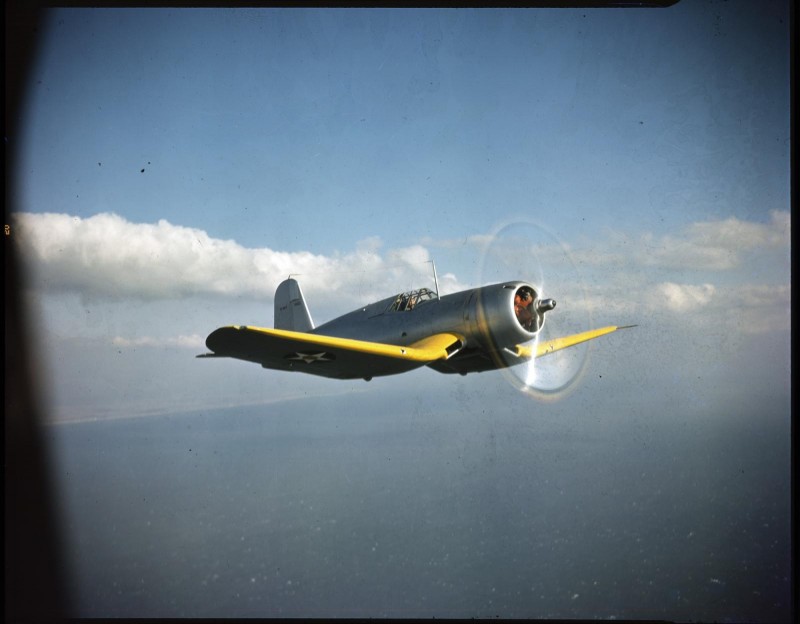
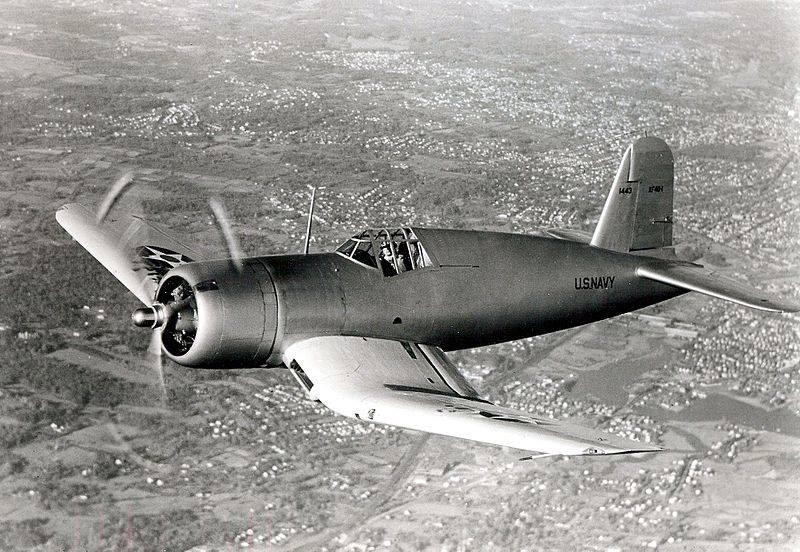
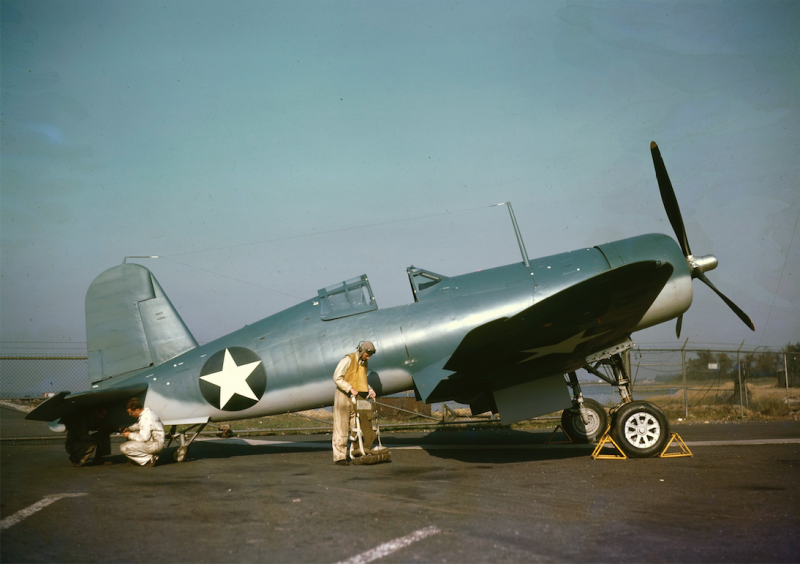

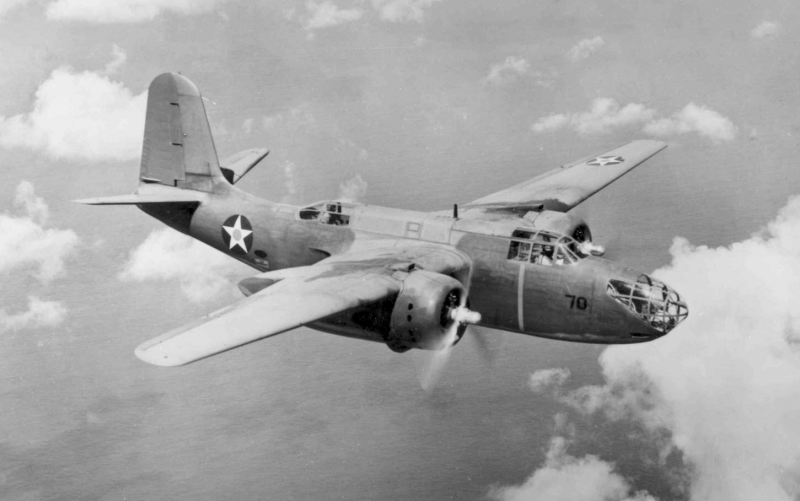
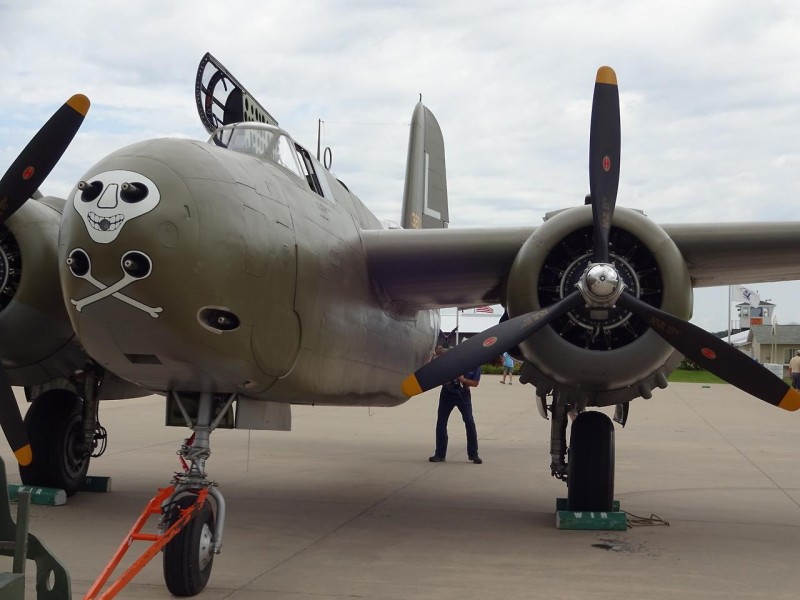

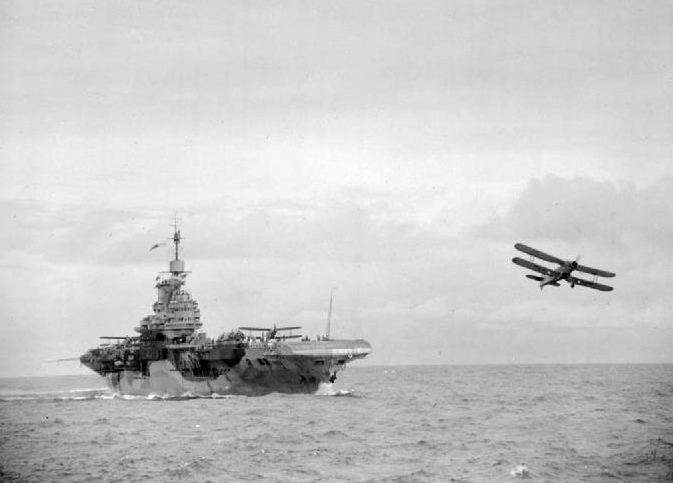

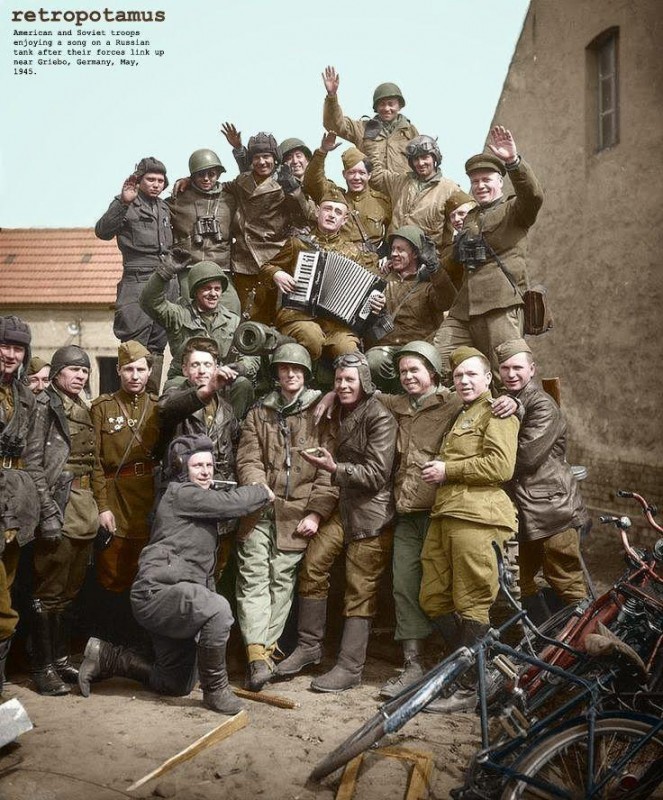
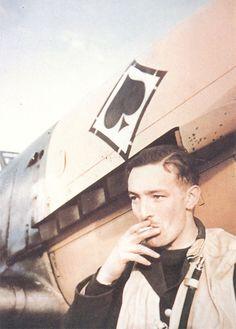

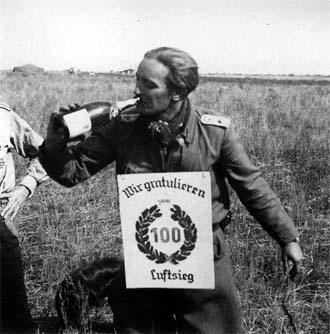
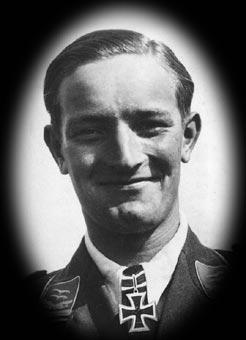
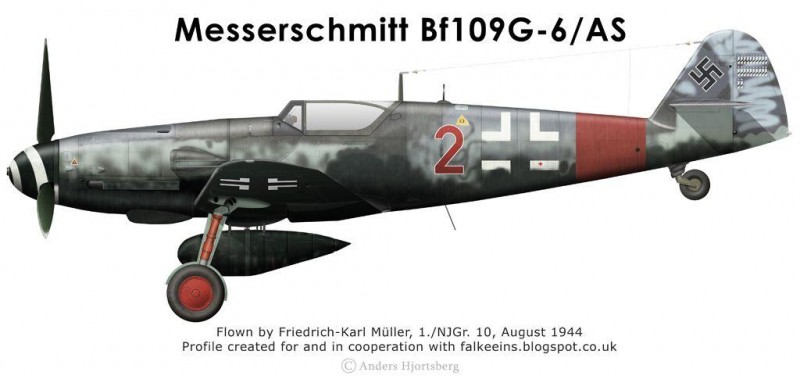
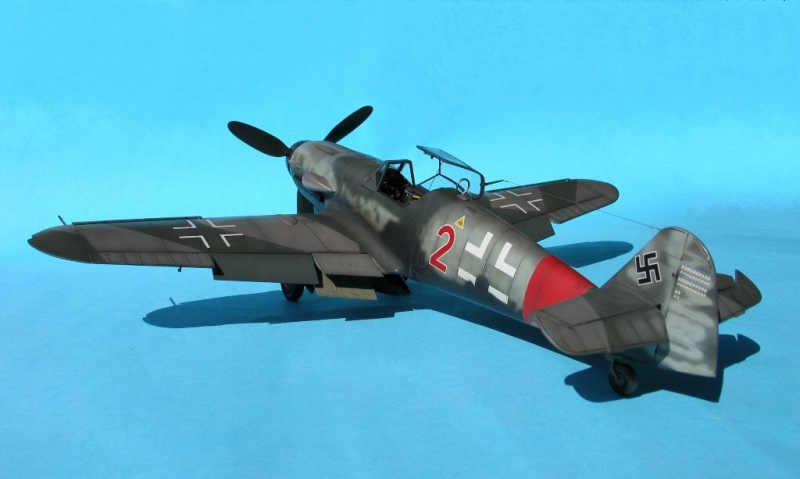
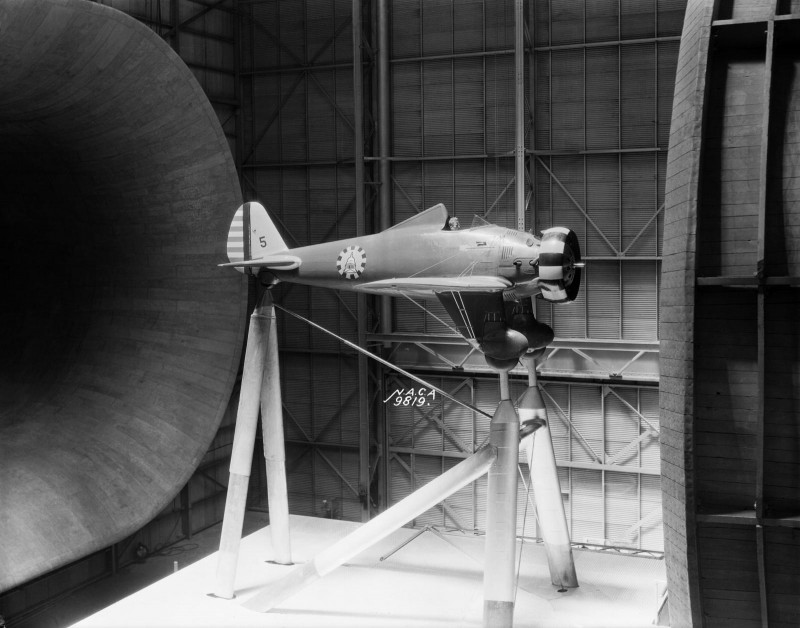
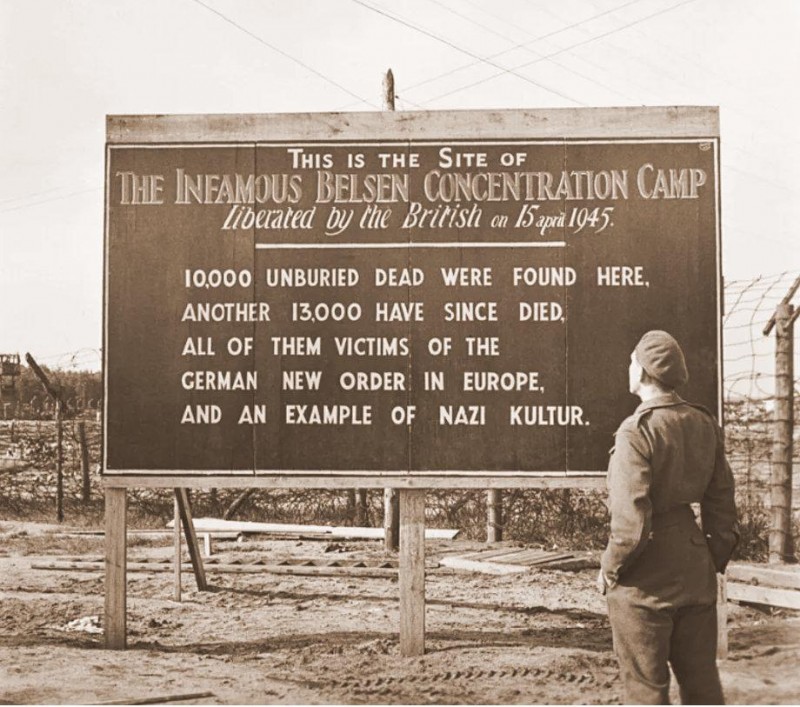
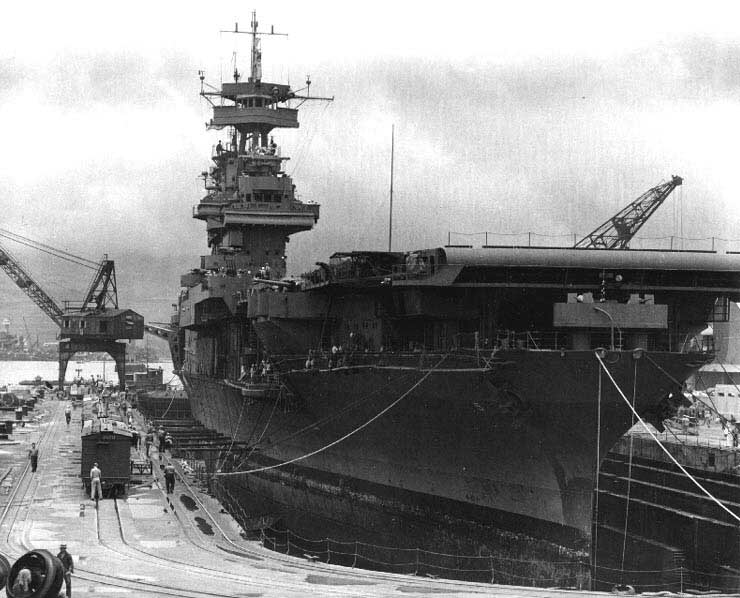

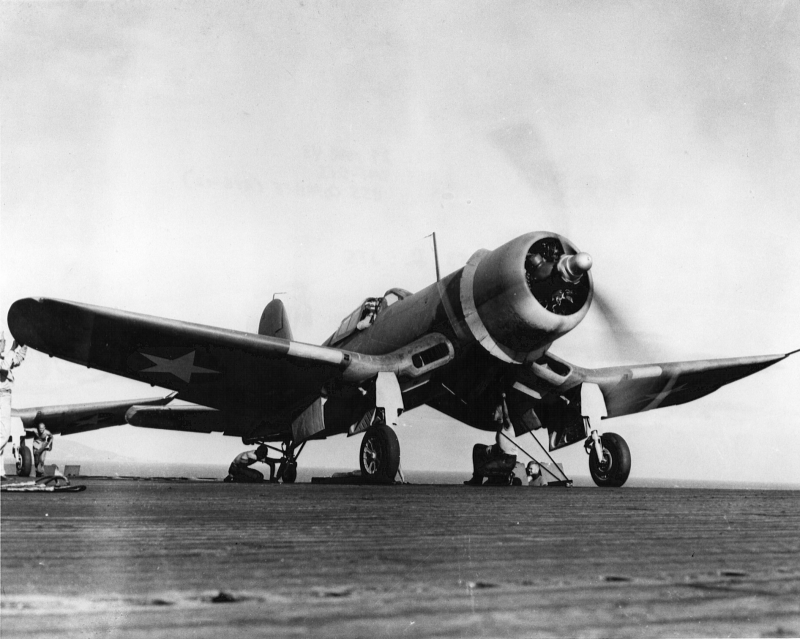
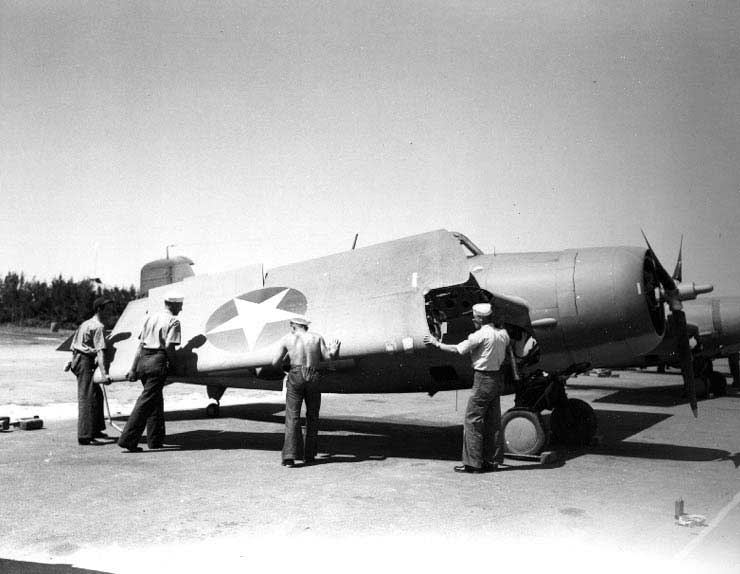
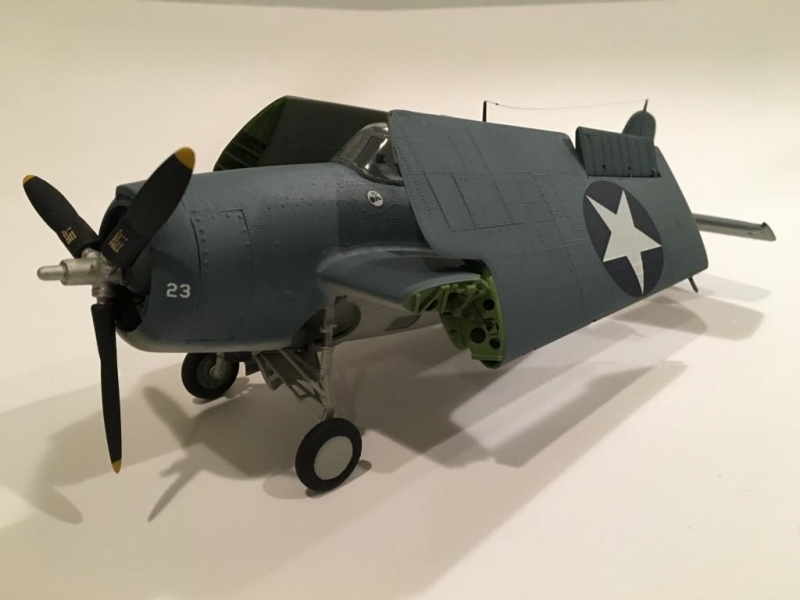
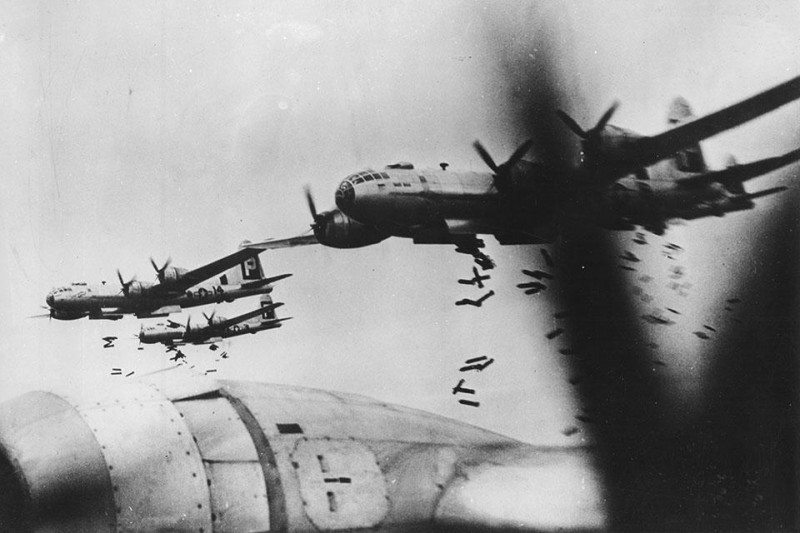
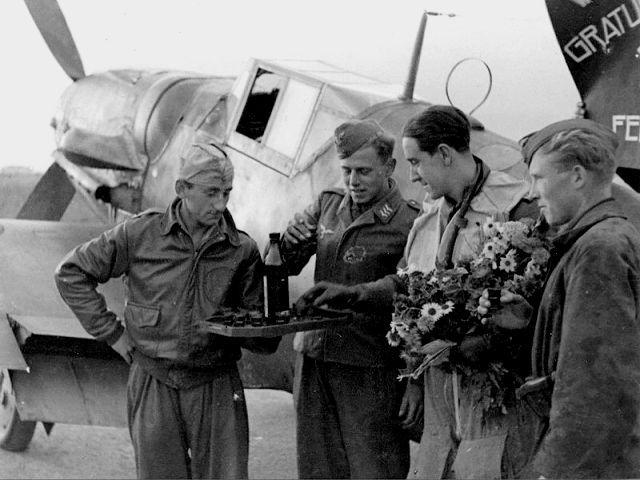
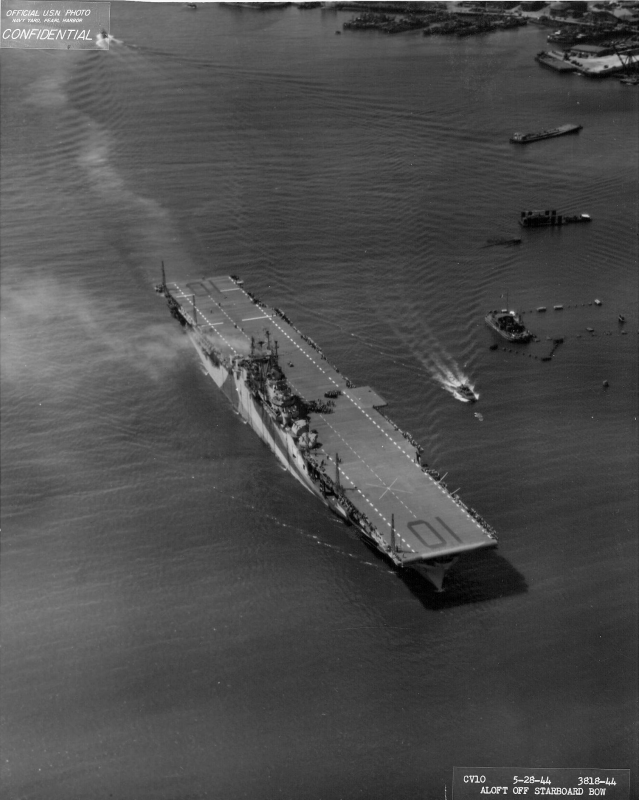
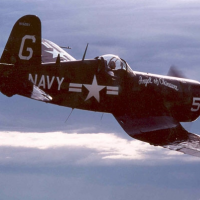

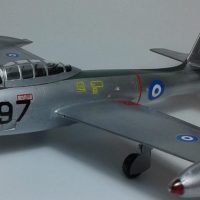

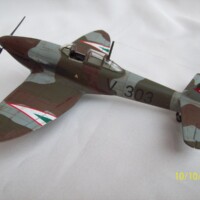
As an aircraft enthusiast, I can help but be enamored by this post!
Today is certainly a little aircraft heavy. Not at all deliberate, Greg, it’s strange how the day to day emphasis of the thread changes, from Sea battles to land and air.
Thanks, Greg.
Great (but necessarily short) history of a world-class aircraft; the legendary F4U Corsair. Thanks, David.
The photo of the sign at Belsen is interesting as well. During my 8 years spent (happily) in Germany (Oberammergau & Fulda), I had the chance to visit many world renowned sights: King Ludwig's amazing castles, Kreuzberg, and I've skied the Zugspitze (the tallest mountain in Germany) ... and visited both Belsen and Dachau. Belsen (also known as Bergen-Belsen - where Anne Frank died, among others) and I think everyone who values their freedom should visit them, if possible. Bergen-Belsen is now pretty much a beautiful memorial with lots of flowers and such, but Dachau can be very hard to see. They have thousands of photos and it is very stark. And they should never be forgotten; especially for the tens of thousands who died at the hands of their captors.
Again ... this is a VERY interesting "OTD" - especially to me.
I had the opportunity to visit Dachau... the place was eerie and it raised the hair on the back of my neck more than once.
The photo of Belsen was taken today, and as such there’s a real connection through history straight through to this moment. Never forget. I’m glad you left this comment, Jeff.
great day in the morning man...what a post
You are very welcome Bob Mack. Very welcome.
Love how you are sprinkling in the iModeler builds, David. And sorry I missed the doom of the Bismarck--always a solemn affair no matter which side you were on; I was on holiday.
I must say, that shot of the B-29s is downright apocalyptic. Frightening, and quite a contrast to gallant the duel of a Swordfish skimming the waves and trying to get the torpedo to drop properly into the waves while the AA gunners on the Bismarck desperately attempt to take her out. I suppose the Belsen sign sums it all up anyway.
I have a personal connection to the surviving A-20. It's an A-20J, s/n 43-21709, once owned by one Willie Farah, who ran a large clothing manufacturing company in my home town of El Paso, Texas. The N-number then was N3WF. My dad used to work for him, and he got a 12 year old me in to Mr. Farah's hangar one day to see the airplane being restored. Somewhere in the pile of photos my dad has is one of me sitting on a milk crate in the cockpit. I remember Mr. Farah asking me to keep an eye peeled for a Martin electric turret, which was the only major component he never came up with. 12 years later, while working for Flight Systems, I'd go in to work early on Tuesday mornings to see them fly the A-20, which was a weekly event. Farah's hangar was two doors down from mine. Nothing like the sound of short stack radial engines and the smell of high octane aviation gasoline early in the morning. N3WF was a regular on the Texas airshow circuit.
When Farah's clothing company failed, the airplane bounced around for a while before ending up in the Lone Star Flight Museum in Galveston. I finally found Mr. Farah's turrets for him, two of them as a matter of fact, sitting in front of the museum's PB4Y-2 not fifty feet from the A-20. Eventually, she went to Rod Lewis in California, who had Aero Traders restore the airplane to what you see now. She finally got her turret...
1 attached image. Click to enlarge.
beautiful Jaime
Very neat story Jaime... was the A-20 there in the 1980's ?
I’m so glad now that I posted the photo of the Havoc; these are very special memories you have, Jaime, and I appreciate you sharing them. As a ten year old to have these experiences, I can only imagine the excitement you must have felt and it’s no surprise at all you took the profession you did.
The photo is beautiful. Thanks for a wonderful post.
@jetmex
I saw it first in 1970 under restoration (see the above pic) in El Paso, while my tenure with FSI was 1980-81. The Farah company went under in the late 80's if I remember correctly. I'm not sure when the airplane came to Houston, but it was here when I arrived in 1991. It was at LSFM for quite a while, but was never flown, probably because they didn't have a qualified pilot or for insurance reasons.
http://www.aerialvisuals.ca/AirframeDossier.php?Serial=48795
Well David... @dirtylittlefokker
Just when I thought it couldn't get any better. This one happens to be my new all time favorite article in your daily series.
My high school power mechanics / shop teacher was a Flight Engineer in B-29's and he flew missions over Japan. I don't know if he remained in the B-29's after the War, but it's possible he could have also flown missions over Korea. His name was Frank Zima... I'd like to learn more about him.
This set of photos cover all of the bases. I'm especially honored that you chose a picture of my ancient Revell 1/32 F4F Wildcat to use as part of today's article. It was one of my first attempts at scratch building some of the details in the wing fold areas.
Your story telling capabilities combined with some wonderful pictures make reading these articles a daily ritual for me. You always manage to bring a smile on my face, and provide inspiration for future builds at the same time...
For instance, I just took another look at a 1/32 scale Hasegawa P-26 Peashooter in the stash... those are some beautiful planes... and another serious look at my 1/48 scale Monogram B-29... which is going to take a LOT of bare metal foil ! I have a set of True Details "corrected" resin propellers and wheels for it. I'm happy to say it will now be inching it's way closer to the work bench.
Thanks again my friend. You have brightened my day. 🙂
Thank you !
"Friendship is born at that moment when one person says to another: What! You too? I thought I was the only one."~C.S. Lewis
Jaime Carreon, I am olive drab with envy over your A-20 experiences!
A-20s are in a class all their own. I agree.
Good post, David.
In his autobiography, Wing Leader, Johnny Johnson writes that at the end of the war, he was the Senior Allied Officer present in the region of Belsen (commanding at Celle). He ordered the Allied provisional military government people to organize the distribution of ration cards to the local Germans (after heating repeated stories of "knowing nothing" about the camp) so that they all had to walk through the camp to get to the tables where they would receive their ration cards. he wrote of the Germans crying and wailing over being forced to do this, and how he made certain that everyone did it, so none could ever again say they knew nothing of Hitler's crimes.